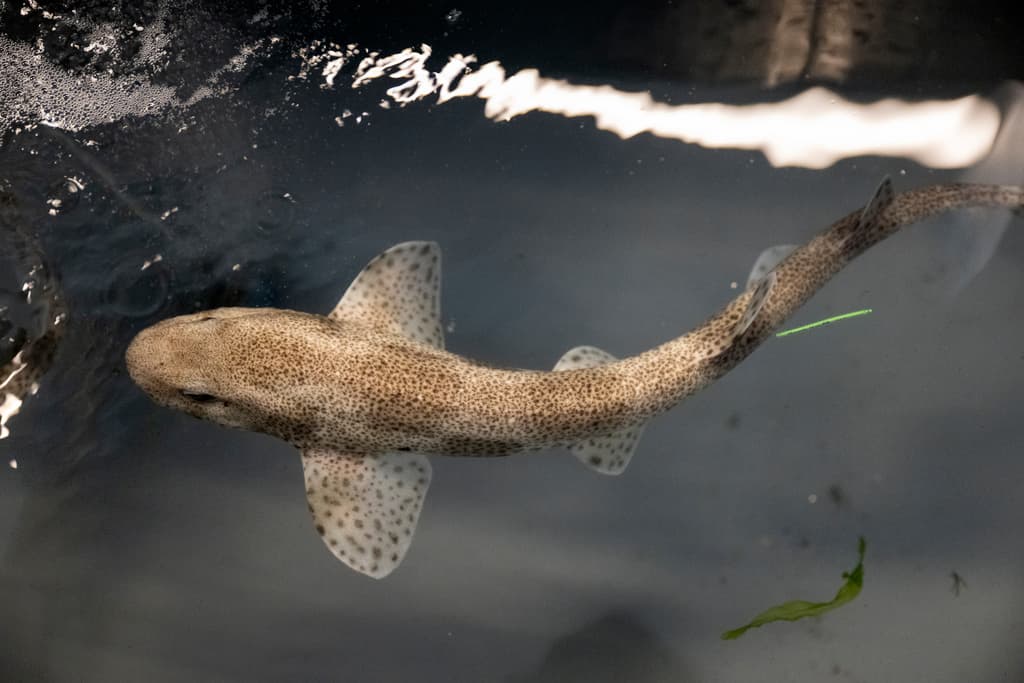Warmer seawater in combination with acidification can pose a great danger to sharks in the oceans. Their eggs develop much worse, which leads to the embryo dying, according to a new study.
The study, which was recently published in connection with a scientific conference in Prague, is based on experiments with eggs from small-spotted catshark (Scyliorhinus canicula), a small species that is common along Europe's coasts, including the Swedish West Coast.
The researchers, led by biologist Noémie Coulon at the marine biological laboratory in Dinard in Brittany, France, tested how the eggs coped with temperature increases according to two of the scenarios worked on by the UN's climate panel IPCC. In one case, the test was based on a rise of two degrees Celsius by 2100, and in the other, a rise of four degrees. The latter could be the case if greenhouse gas emissions are not significantly reduced.
Increased mortality
At the same time, it was assumed that the oceans are becoming increasingly acidic as the temperature rises. Consequently, the researchers lowered the pH value in the water in both tests.
It must also be taken into account that seawater, in this case off Brittany, is significantly colder in winter than in summer. The water is warmest in August.
The result is telling. The development of the eggs was normal, and 83 percent of all embryos survived when the temperature increase was moderate. Lively little sharks hatched into the world.
But when the temperatures rose to far above normal, it went worse. Mortality increased dramatically, especially in August, and only 11 percent of all embryos survived until hatching. It was clear that their growth was slower. In most cases, the gills were not fully developed either.
Great concern
The researchers themselves say they were shocked by the mortality. The world's oceans have clearly become warmer since at least the 1980s. The increase in surface water temperature is now around 0.8 degrees above the average for the 20th century, which has raised great concern among researchers. It is well known that coral reefs are taking a hit, but there are fears that many other organisms will also be affected.
At the same time, Noémie Coulon points out that the fact that 11 percent of the shark embryos survived raises some hope. It shows that individual variation is great, which means that natural selection has a lot of material to work with. The species may therefore be able to cope when the environment changes.
The small-spotted catshark (Scyliorhinus canicula) is a small species, at most one meter long. It occurs from Norway down to the Mediterranean and Senegal. In Sweden, it is common along the West Coast. The diet consists of fish, crustaceans, and mollusks. The species has no specific breeding season but mates throughout the year. The eggs, or rather the egg capsules, are anchored with threads on suitable objects on fixed substrates. They hatch after eight to nine months. The species is protected, just like other sharks.
Source: The Swedish Agency for Marine and Water Management.






